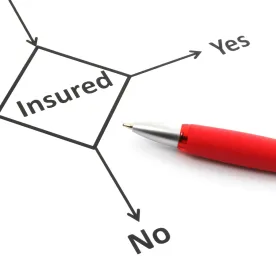The Eleventh Circuit recently held that sending a fax in violation of the TCPA is not considered an “accident” in determining whether coverage existed for TCPA claims under a commercial general liability insurance policy. In G.M. Sign, Inc. v. St. Paul Fire & Marine INS. Co., No. 17-14247, 2019 WL 1579792, at *2 (11th Cir. Apr. 12, 2019), the Eleventh Circuit affirmed a decision by the District Court for the Northern District of Georgia denying insurance coverage for TCPA liability involving a party who sent junk faxes to recipients whom it thought had consented to receiving such faxes.
In G.M. Sign, Inc., plaintiff/appellant G.M. Sign brought suit against St. Paul seeking a declaratory judgment that St. Paul was required to indemnify its insured, MFG.com, for liability MFG incurred for faxing advertisements to recipients it mistakenly thought had consented to receipt. Id. at *1. This was following a settlement of an earlier TCPA putative class action in which G.M. Sign had sued MFG. As part of that settlement, MFG agreed that it was liable to the class in the amount of $22,536,500, but that it would pay only $460,000 of that amount, and assign its rights under its insurance policies with St. Paul to G.M. Sign to pursue payment of the remaining balance owed.
The insurance policies at issue covered “property damage” caused by “an event.” Ibid. The policies defined property damage as “physical damage to tangible property of others, including all resulting use of that property” or “loss of use of tangible property of others that isn’t physically damaged.” Ibid. The policies defined an “event” as “an accident, including continuous or repeated exposure to substantially the same general harmful conditions.” Ibid. The policies did not define the term “accident.” Ibid.
G.M Sign filed suit against St. Paul. The district court ultimately granted summary judgment in favor of St. Paul based on an Eleventh Circuit case (Mindis Metals, Inc. v. Transportation Insurance Co., 209 F.3d 1296, 1297 (11th Cir. 2000), which held that under Georgia law intentional conduct premised on erroneous information is not an “accident” for general liability insurance purposes. Ibid.
On appeal before the Eleventh Circuit, G.M. Sign maintained its argument that St. Paul was required to indemnify MFG for its TCPA liability because the term “accident” under Georgia law covers injuries resulting from negligence. G.M. Sign argued that MFG sent the faxes negligently because it never intended to send any faxes without the recipients’ consent, so it had no intent to injure the recipients. St. Paul responded that no accident occurred when MFG sent the faxes because by sending the faxes, MFG intended to cause the relevant property damage—the use of the recipients’ fax machines and the depletion of their ink and paper. According to St. Paul, MFG’s mistaken belief that the recipients agreed to receive the faxes was immaterial. The court agreed with St. Paul.
In reaching its decision, the Eleventh Circuit focused on the issue of “whether, under the Policies, an ‘accident’ occurred when MFG intentionally sent faxes that caused the recipients’ fax machines to suffer property damage given that MFG mistakenly thought the recipients had consented to receive the faxes.” Id. at *2. Because the insurance policies did not define the term “accident,” the court had to give that term its common meaning, which, according to the Supreme Court of Georgia, is “an unexpected happening without intention or design.” Ibid.
Finally, applying the Eleventh Circuit’s rule it adopted in Mindis Metals, the court held that no accident occurred when MFG sent faxes with the mistaken belief that the recipients had consented to receive them. The court found that MFG intended to send the faxes and thus intended to cause the resulting property damage, the use of the fax machines and the depletion of the machines’ ink and paper. The fact that MFG mistakenly thought the recipients had consented to receive the faxes is insufficient to render the property damage an accident under Georgia law. Thus, the insurance policies’ property damage provisions provided no coverage for the TCPA liability arising from MFG’s conduct.
The takeaway from this case is that if you are a defendant who could possibly face TCPA liability at some point in the future, double check your liability insurance policies. Of course, it is never a bad idea to know exactly which types of liability you are covered for and which types you are not. Further, double-checking your liability policies now and adjusting or adding to them as needed may very well save you and your business a great deal of money at some point in the future.



 />i
/>i

